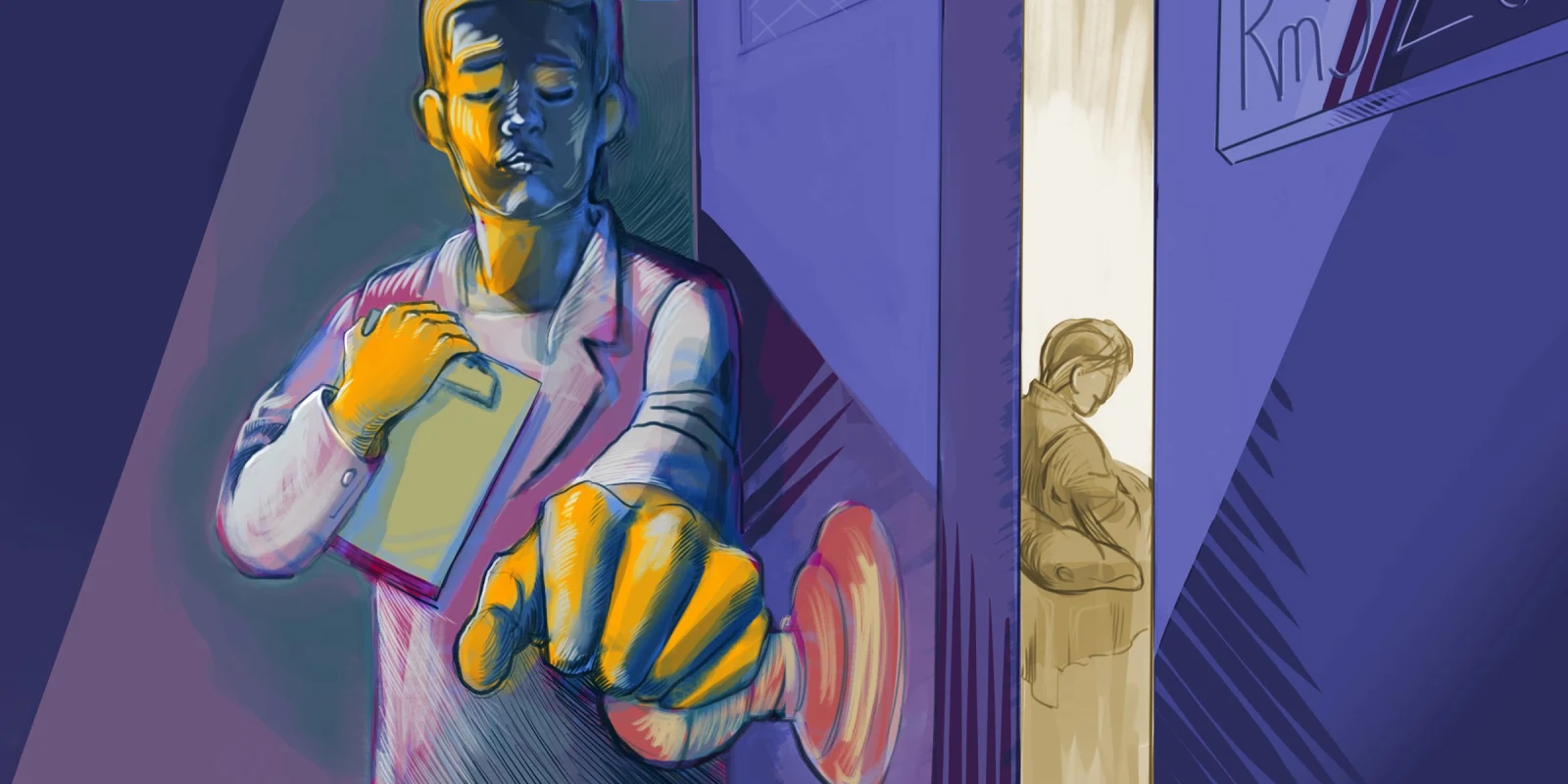A middle-aged man came to our endoscopy suite scheduled for an esophagogastroduodenoscopy (EGD), a scope exam of the esophagus and stomach. I had never met him previously. In fact, many of the patients on my procedure schedule have not met me previously. They are referred in for exams by primary care physicians or other GI professionals. While I always feel that it is best if the treating gastroenterologist performs the procedures on his or her own patients, oftentimes there's a sooner opening on another GI's schedule that the patient prefers to utilize. Patients and clinicians in our very large health care system are used to this reality.
After arrival, patients endure sequential interviews. Yes, there is redundancy in the process but this built in inefficiency protects patients. There are instances, for example, when a patient offers a different response to a similarly worded question asked by a second or third questioner. Indeed, a patient will misunderstand the process, and regularly remark that they've "already been through all this with the nurse!"
The patient is first interviewed by the admitting nurse, followed by the nurse anesthetist (NA), and then me. The primary reason is to ensure that there are no safety concerns present. Of course, we also want to ascertain the medical reason that the test was ordered. But if a medical professional has ordered the test, and there are no safety barriers present, then we generally proceed even if there is more art than science in the procedure's stated indication. Analogously, when a CAT scan is ordered, the radiologist will generally do the study without offering a medical opinion on the scan's value.
With regard to my EGD patient, the NA determined that the patient's airway was very narrow and she deemed that this made him ineligible to have the case done in our outpatient facility. Although airway complications are rare, if one did occur, then the NA might have difficulty rescuing him and a catastrophe could occur. The procedure was canceled. The patient was very frustrated with this decision. It had taken him weeks to get this scheduled and he was primed to proceed. It was clear that he wished to go forward despite the NA's concern which he felt was overkill. I approached him to express understanding for his disappointment but pointed out that the issue was nonnegotiable. He calmed down but he wasn't pleased with the outcome. He was rescheduled to be done in the hospital where there would be more expertise and equipment available to manage respiratory complications. As an aside, but not relevant to our decision, I suspected based on his history that the EGD result would likely be normal.
Of course, in a more perfect world, a patient's response when a procedure is canceled for safety reasons should be, thank you! As the physician, I am always grateful when a colleague steps in to protect one of my patients. But more often than you might think, patients offer a different reaction, particularly if they have prepped for a colonoscopy, have taken a day off work, have a driver present, and are psychologically locked in to proceed. I get this. And while there is room at times for flexibility, this is not always the case. And if an NA advises against going forward, then the procedure will not take place.
Our NAs diligently review all charts in advance to identify patients who are not eligible to be treated in our unit. Not surprisingly, since this is a human endeavor, some ineligible individuals escape attention. When medical concerns are first identified on procedure day, this does not mean that the system failed, as the issue was still identified prior to the procedure. While this is not our preferred timing, and is rather inconvenient for the patient, the patient is still protected from harm. The fact that we interview patients after arrival indicates that we do not rely on advance chart review alone. There are also times when the safety concern is elicited on procedure day and does not appear in the medical record.
There are many layers of preoperative care established to protect patients from harm. Corner cutting invites a misadventure. And if an issue is discovered after arrival, then the team should collaborate to decide if the concern is tolerable or if the procedure should be canceled. These are issues of medical judgment and different practitioners may reach different judgements.
This is not a discussion of treatment options where patients not only have a voice but make the decision. If the medical team decides to cancel a medical procedure because of undue medical risk, then the patient is simply informed of the decision.
Imagine if we gave patients the authority to override the medical team. What reaction might you expect from them and their families if a serious complication occurred when significant risk factors were identified in advance? I doubt that our stating that the patient wanted it done would carry the day.
Michael Kirsch, MD writes weekly medical commentary at www.MDWhistleblower.blogspot.com. He is a practicing gastroenterologist at the Cleveland Clinic Foundation (CCF). The views expressed here are his personal opinions and do not represent the views of CCF.
Illustration by April Brust







